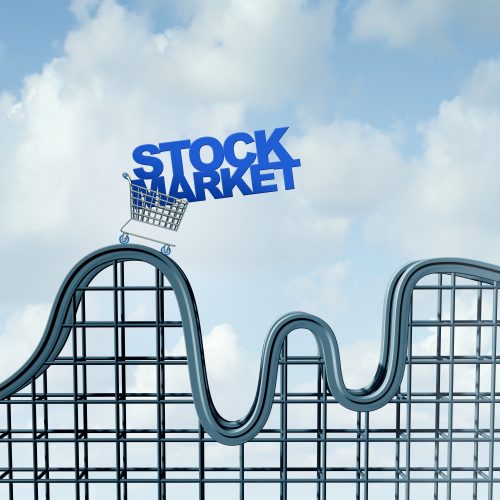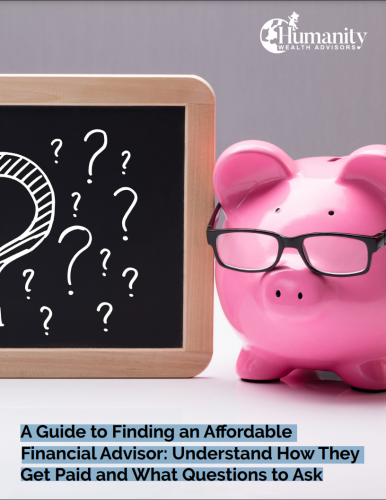As a financial advisor, I’ve seen clients come in with a wide variety of investment ideas. Some want to play it safe by investing primarily in low-risk bonds, while others want to take on more high-risk stocks or other types of securities. The only problem is that no one can predict what the stock market will do next, especially in rocky economic conditions.
If you are curious or weary about investing in volatile markets, here are some questions you can ask your financial advisor. If you don’t have one, we can get you started via affordable subscription-based financial planning in San Ramon, Newark, or virtually.
#1 What is your investment strategy, and how does it align with my goals?
Most financial advisors have specific investment approaches and strategies for selecting investments and managing your money. Make sure they have done their homework in getting to know you first to ensure financial planning efforts are on point with your goals. Ask question #1 to see how they respond.
- They should know your goals.
- They should have an investment plan that aligns with those goals.
- They should be able to explain your investment strategy in plain language you understand (If the advisor can’t clearly explain their strategy to you, that’s a red flag.)
#2 How will you select investments that are right for me?
An experienced financial advisor can begin answering this question by explaining the importance of risk tolerance and time horizon.
- Your professional should take time to ensure they have assessed your finances and risk appetite clearly to reach this conclusion.
- They should clearly understand how much volatility you can handle based on how much in assets you have and when you will need access to any funds.
- Since risk tolerance changes, rebalancing will be needed from time to time, so ask them how often they do so.
Next question…
#3 How will you monitor my portfolio and rebalance it if and when necessary?
 One of the most valuable tools you have as a client is your financial advisor’s ability to monitor your portfolio and rebalance it when necessary. When markets are volatile and changing quickly, having a plan to keep your investments on track can provide confidence and help ensure that you remain invested (in the right stocks, for example) at all times.
One of the most valuable tools you have as a client is your financial advisor’s ability to monitor your portfolio and rebalance it when necessary. When markets are volatile and changing quickly, having a plan to keep your investments on track can provide confidence and help ensure that you remain invested (in the right stocks, for example) at all times.
Your advisor will be able to let you know when your holdings have become too heavily invested in one type of stock or asset class so that they can be rebalanced back into an appropriate mix for long-term growth. If this sounds like something that would benefit from monitoring or rebalancing by your advisor, ask them how they do it!
As an affordable financial advisor in the Bay Area, we are happy to give you a second opinion on your current asset allocation. Just ask us at Humanity Wealth Advisors!
#4 What protection do I have against market volatility?
The most important thing you can do to mitigate risk from volatile markets is to have a diversified portfolio managed by an experienced financial advisor in San Ramon or near you. They should be able to provide insight into current market conditions and help guide you through potential opportunities, both long-term and short-term.
The bottom line: don’t try to navigate this type of situation alone! Many financial pitfalls can take down even the savviest of DIY investors.
#5 What is causing the market volatility?
Ask about their take on economic uncertainty. The first and most apparent cause of volatility is the relative unknowns about how the economy will perform in the future. Many factors influence this, including trade wars and tariffs, interest rate policies from central banks, presidential elections, and oil prices.
Ask about market sentiment. When optimistic about their prospects, investors are more willing to take on riskier investments like stocks. When pessimistic, they tend to retreat into safer assets such as bonds or cash deposits with banks (this is called “risk-aversion”). These extremes in sentiment can cause wild swings in stock prices because investors rush into one category while fleeing another—the result being what we call “volatility.”
#6 Is now the right time to rebalance my portfolio?
A portfolio that is not rebalanced is likely to drift from its original asset allocation. If the market increases, you could sell some winners and buy some losers. On the other hand, if the market goes down, you could sell some losers and buy some winners.
An advisor that stays on top of your investment portfolio can see what needs to happen. Things may need adjusting if and when one part of your portfolio becomes overweight in an asset class while another part may be underweight in that same asset class.
#7 Should we be tweaking our investment plan?
I am not going to give you a yes or no answer. In fact, it’s more important than ever to avoid making any rash decisions during volatile markets. It’s easy to panic when things get rough—and many people do—but that behavior can be disastrous for your investment plan.
As much as we’d all like our investments to appreciate in value daily, it just isn’t possible. Sometimes they’ll go up, and sometimes they’ll go down. We don’t want you to take drastic action based on short-term fluctuations in the market; instead, let’s use what’s happening right now as an opportunity for reflection.
Properly managing your investments requires patience and discipline when everyone around you seems eager for quick solutions or quick profits—this will help ensure that your decisions are grounded in reality rather than emotion
Read: The Psychology of Investing: What Can a Financial Advisor Do for You?
#8 Are you concerned about the sustainability of the market rally?
 Ask this question if you are concerned about your financial advisor’s understanding of what is happening in the markets and why. It’s like asking a doctor when to expect a cold to end or an engineer how long it will take for your car’s engine to break down. You’ll get an answer that makes sense only if your advisor has been paying attention because they should be familiar with the cycles.
Ask this question if you are concerned about your financial advisor’s understanding of what is happening in the markets and why. It’s like asking a doctor when to expect a cold to end or an engineer how long it will take for your car’s engine to break down. You’ll get an answer that makes sense only if your advisor has been paying attention because they should be familiar with the cycles.
Ask about specific economic indicators (like unemployment rates) that would signal trouble ahead:
- Do these indicators show us anything different now than they did years ago when we had another major bull market run?
- What have those indicators been saying lately?
- How often have we seen this kind of thing happen before—twice in 15 years?
- Ten times over 50 years?
- Fifty times since 1900!
Why should things be any different now than they’ve always been (in terms of our ability as individuals who own stocks/bonds/mutual funds etc., which constitute most Americans’ investment portfolios)?
#9 Are there any specific asset classes or industries you are worried about?
A market correction is when stocks experience a significant drop in value. A market crash, also known as a bear market, is when stocks plunge by more than 20% from their peak levels and do not recover for months or even years. A recession occurs when an economy contracts for at least six months, while a depression is considered to be the worst form of a recession that lasts for more than ten years.
It may sound scary to think about losing your hard-earned money. Still, knowing what your investment portfolio could potentially lose is essential to make better decisions about where to invest in a volatile market.
#10 What do you charge for your services, and can you provide me with a written fee schedule?
According to a survey by FINRA, 17% of investors do not know what they pay in investment fees. This is what makes understanding the costs and pricing structure essential. It’s also why people lose faith in their advisors: they feel there are hidden fees.
Take time to review our pricing structures and opt-in for the solution that best fits your financial needs: we have an option for everyone!
The takeaway
 Download our free eBook: A Guide To Finding An Affordable Financial Advisor: Understand How They Get Paid And What Questions To Ask
Download our free eBook: A Guide To Finding An Affordable Financial Advisor: Understand How They Get Paid And What Questions To Ask
Make sure you trust the person managing your finances by asking these questions about investing in volatile markets. Ask us to re-evaluate your investment portfolio with your goals if their answers raise some red flags.
If you have more questions about your finances, please feel free to reach out to us at Humanity Wealth Advisors! We have a library full of helpful information to help you get and stay financially well.



